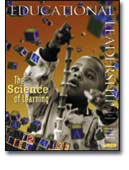To take a stranger's point of view on everyday reality is to look inquiringly and wonderingly on the world in which one lives. It is like returning home from a long stay in some other place.—Maxine Greene
Greene originally prepared Teacher as Stranger as a philosophy of education textbook. Incorporating continental philosophy—existentialism and phenomenology—during a time when analytic philosophers ruled education, she examined such overlooked topics as freedom, truth and belief, and science and subjectivity. She asked,What is entailed by [our] current understanding of thinking, knowing, believing, abiding by norms and rules? What is demanded of the teacher who confronts the disintegration of cultural norms, the arbitrariness of value claims, the doubts respecting free will? (p. 21) Greene challenged teachers to continue to struggle to clarify the "multiplicity of options" of actions.
In her work, Greene drew upon her interest in existentialism and social phenomenologist Alfred Schutz's idea of stranger and newcomer. She recently reflected,Identifying the teacher with a stranger, I had in mind a practitioner who would notice, pay attention, ask critical questions in a way seldom done by someone so accustomed to the situation that its very familiarity obscured the details. My idea was that a teacher who first approached a class as a stranger in Schutz's sense might remain wide-awake and critical of what surrounded her/him, more given to noticing and responding to what might be smothered by the taken-for-granted. (Greene, 2000, p. 103)
In Their Own Words
We do not ask that the teacher perceive his existence as absurd; nor do we demand that he estrange himself from his community. We simply suggest that he struggle against unthinking submergence in the social reality that prevails. If he wishes to present himself as a person actively engaged in critical thinking and authentic choosing, he cannot accept any “ready-made standardized scheme” at face value. . . . How does a teacher justify the educational policies he is assigned to carry out within his school? If the teacher does not pose such questions to himself, he cannot expect his students to pose the kinds of questions about experience which will involve them in self-aware inquiry.
—Maxine Greene, Teacher as Stranger
